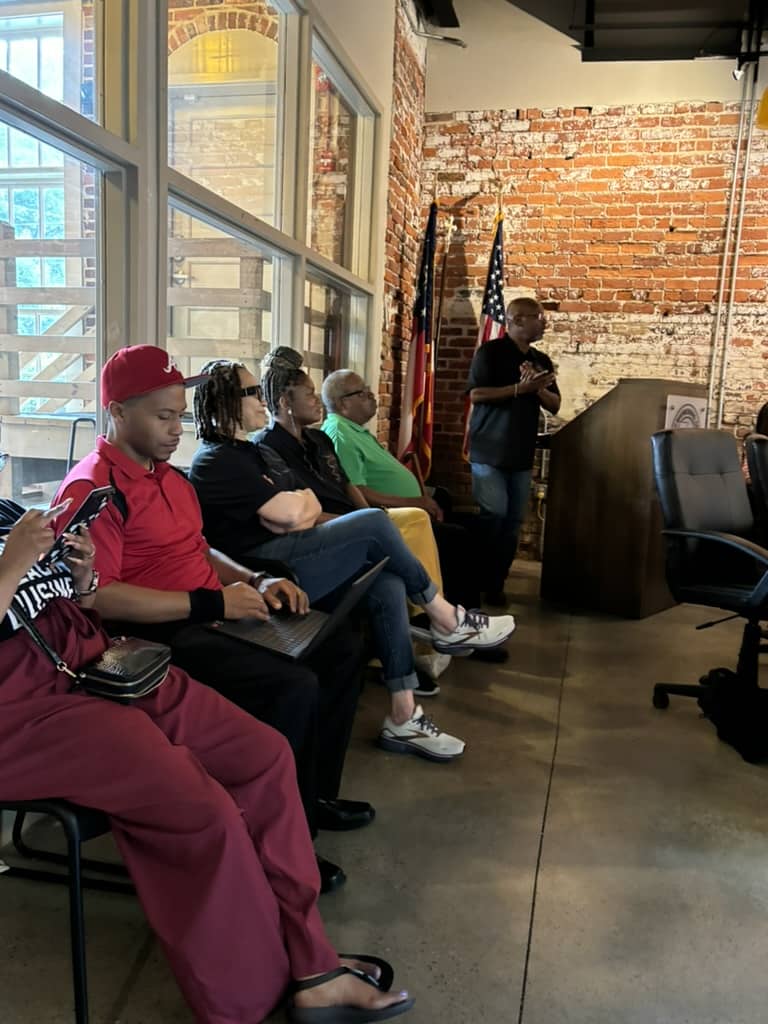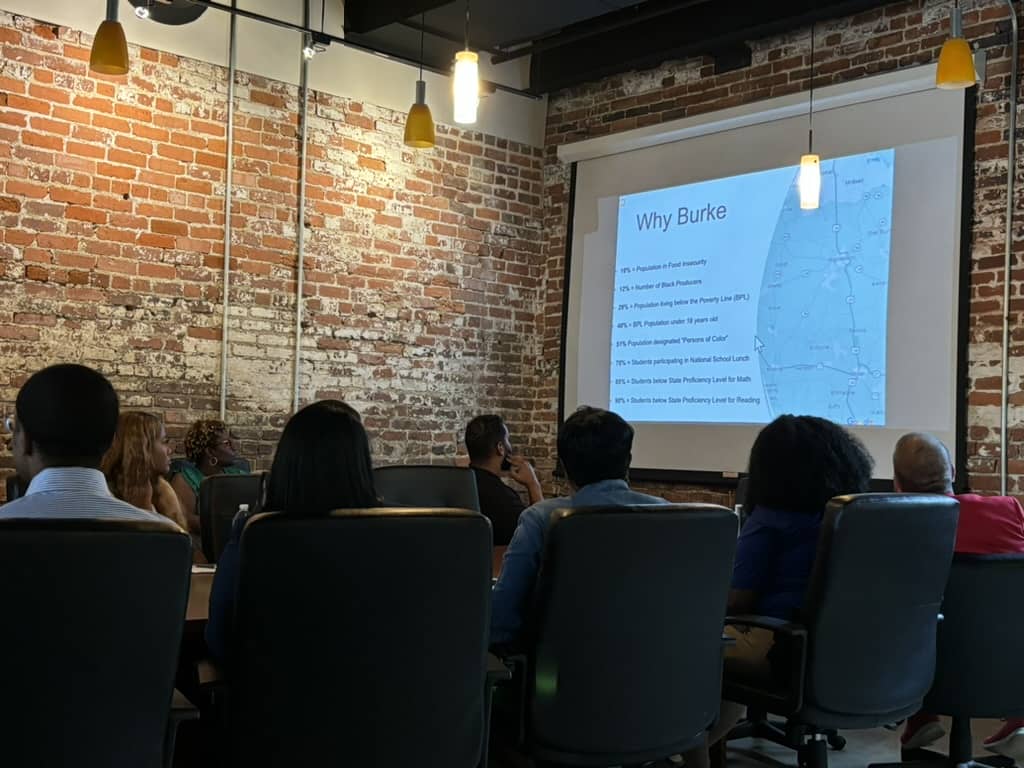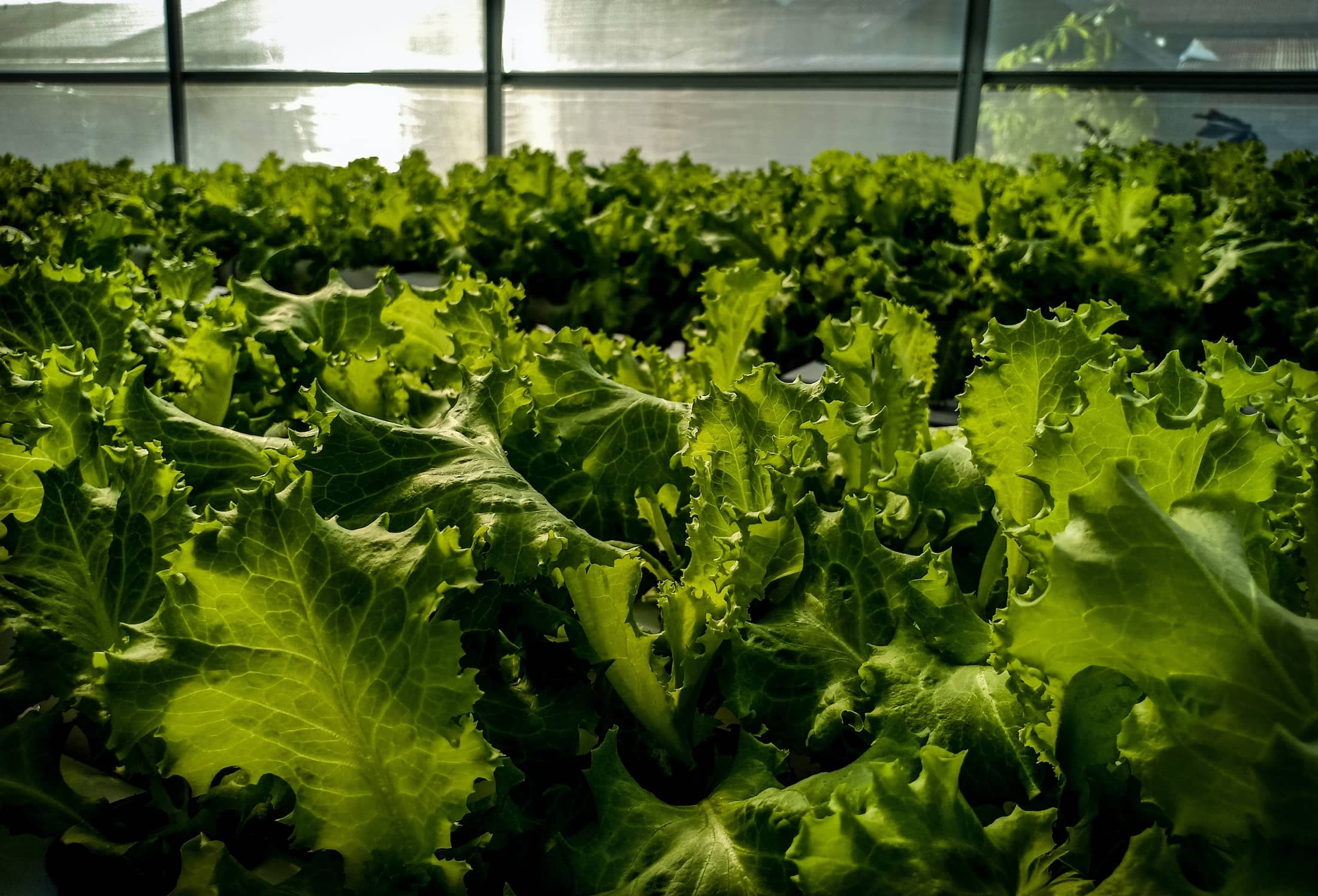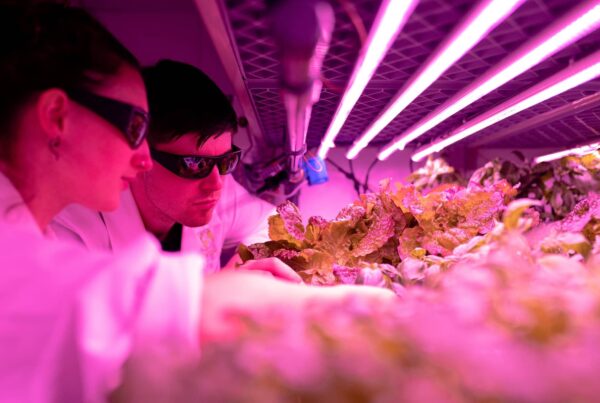In the iteration of the CEA Accelerator Community Profile series, we look at the potential impact CEA can have in Georgia and the industry vision Ebony Tree Farms hopes to bring to life.
As part of their shared development work on the national Controlled Environment Agriculture Accelerator program, Resource Innovation Institute (RII) team members and representatives from Lawrence Berkeley National Laboratory (Berkeley Lab) conducted their first community visit on July 8, visiting Ebony Tree Farms in Georgia to discuss how CEA is being integrated into this region’s agricultural landscape.
The CEA Accelerator project is an initiative between RII and Berkeley Lab, with funding from the U.S. Department of Energy (DOE) Industrial Efficiency and Decarbonization Office. The objective of the Accelerator is to develop a national infrastructure that will help the CEA industry become more energy and water efficient.
The event, organized by Ebony Tree and titled A Community Gathering Advancing the Agri-Tech Health Nexus in Marginalized and Rural Communities, brought together local leaders such as Waynesboro Mayor James Jones, and representatives from a range of organizations, including the Georgia Center of Innovation, Georgia Cancer Center at the Medical College of Georgia, Georgia Power, ACC Training Center, and the Partnership for Southern Equity.
Georgia-native Dr. Jennifer Stokes-Draut, an Energy & Environmental Policy Research Scientist with Berkeley Lab, represented the CEA Accelerator, among additional federal representation from the United States Department of Agriculture (USDA) Office of Urban Agriculture & Innovation Production, and the Offices of Senators Warnock and Ossoff.
The CEA industry stakeholders shared information and learned about the potential CEA has to improve health outcomes and nutrition in rural, economically disadvantaged, and minority-majority communities, such as those in Georgia, a mission that Ebony Tree Farms founders Frederick and Anna Griffin take to heart.


photo: Dr. Jennifer Stokes-Draut
A Georgian Opportunity
Ebony Tree Farms is a social enterprise committed to creating healthy and sustainable opportunities for 100,000 families in the Central Savannah Regional Area (CSRA) by 2030. To that end, the Griffins and their Ebony Tree Farms team hope to build a CEA business that addresses the needs of its community via access to locally- and sustainably-produced foods that can also double as a hub of research and innovation.
The model Ebony Tree Farms wishes to bring forward is expansive and innovative. Starting with a micro-farm campus growing local produce, including herbs, leafy greens, tomatoes, strawberries, and other specialty crops, the center would also offer urban agriculture support focusing on sustainable CEA operations backed by in-house research and development. Beyond horticultural research, Ebony Tree Farms is partnering with researchers from the Medical College of Georgia in Augusta to study how the nutritional benefits of indoor-grown vegetables could reduce the risks of obesity-related cancers in food deserts and food swamps. Food swamps are defined as areas with more access to less nutritious foods than nutrient-dense ones, an issue that especially affects Black and non-white Hispanic communities. Recent research indicates food swamps are more strongly correlated to increased cancer rates than food deserts, where affordable, high quality nutritious food is hard to access.
At the July 8 event, Ebony Tree Farms presented how CEA could help address these issues: Greater access to fresh, organic produce would lead to better nutrition and health outcomes, as well as a reduction in food-related illnesses and healthcare costs. CEA also would promote job creation and workforce development in a highly tech-driven industry. Additionally, establishing CEA businesses in mostly rural and economically disadvantaged areas would ensure equitable access to healthy foods and good job opportunities.
Ebony Tree also highlighted the importance of adopting sustainable cultivation practices, with a focus on implementing renewable energy sources like solar panels and circularity systems such as rainwater harvesting units to minimize these operations’ carbon footprint. Having locally produced food also would reduce food waste and transportation needs, further contributing to reducing carbon emissions, they pitched.
All of this would be done in partnership and with feedback from local communities themselves. Local residents would be included in decision-making processes through a community advisory board. Educational institutions would also be critical, as Ebony Tree Farms aims to collaborate with local schools and HBCUs to develop curriculum and precision Ag technologies focused on sustainable farming, hydroponics, and resilient practices to empower the next generation of farmers within underserved communities.
CEA Accelerator Tool Meets Local Needs
The CEA Accelerator program aims to partner with “communities where we have a closer tie-in to people who are making decisions around CEA,” says Dr. Stokes-Draut. “This community represents a case where we have a small business thinking about how CEA can address equity issues at the very start of their journey. That’s really useful for us because we get to walk through the issues they face and try to figure out what the Accelerator can do to smooth the way for people who are entering the CEA industry in a rural setting and with an underrepresented perspective.”
The CEA Accelerator is learning what type of resources these community-centered groups need to help build their CEA-industry vision. The Accelerator is leveraging the experiences and lessons from groups like Ebony Tree Farms to help develop its upcoming site feasibility tool, “a one-stop shop for learning things like who has money available and how you get it, what you need to think about when you decide where to locate CEA facilities, and how and where these facilities are already located, all of which affect the cost of operating these facilities,” Dr. Stokes-Drault notes.
“We see a key user of the site feasibility tool being state or regional economic development agencies,” explains RII Executive Director Derek Smith. “Prospective farm projects can call economic development agencies and say ‘We want to locate a farm in your region,’ and that agency can then show them where there’s flat land, available power, water access, etc. The tool will help them locate those sites that meet the needs of future growers that want to expand or locate in Georgia or any other state and region.”
Georgia’s economic development strategy, the opportunity to positively impact historically disadvantaged communities, and Ebony Tree Farms’ focus on technology use in agriculture, make the state a prime starting point for the CEA Accelerator. With the Accelerator, “we’re accelerating what the community wants to do,” Smith notes. “We’re understanding how CEA is being used in these communities and supporting the community-led approach to CEA.”
This is the first in a series of CEA Accelerator community profiles highlighting the potential of CEA in those regions and the opportunities the CEA Accelerator has in helping foster and develop the industry in those areas. For more information on the CEA Accelerator and the collaboration between RII, Berkeley Lab, and the U.S. Department of Energy’s Industrial Efficiency and Decarbonization Office, visit resourceinnovation.org/the-cea-accelerator/.






